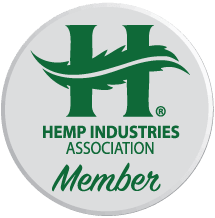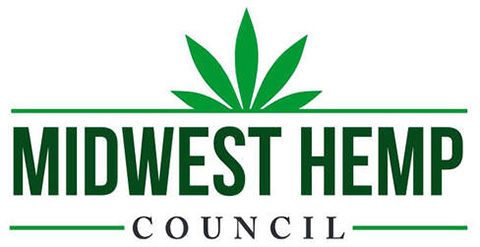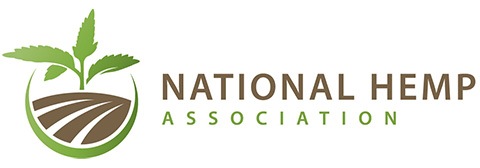According to the Organic Trade Association, sales of certified organic food and non-food products in the United States totaled a record $55.1 billion in 2019, up 5% from 2018. Expanding demand for organically-certified foods and products has extended to the national hemp sector, where advocates say organically-cultivated hemp and certified organic hemp-derived products are a small but growing part of the young industry.
In a 2019 interview with Organic Produce Network, John Roulac, founder and CEO of RE:Botanicals, a Colorado-based producer of organically-certified hemp extracts, noted, “The vast majority of hemp today is conventionally grown using great amounts of synthetic nitrogen fertilizer, causing major ecological damage to local streams, lakes, and oceans.” However, he predicted that more organically-produced hemp will be cultivated and processed “as market demand grows” for certified organic hemp-derived CBD.
How Does Hemp Become Certified Organic?
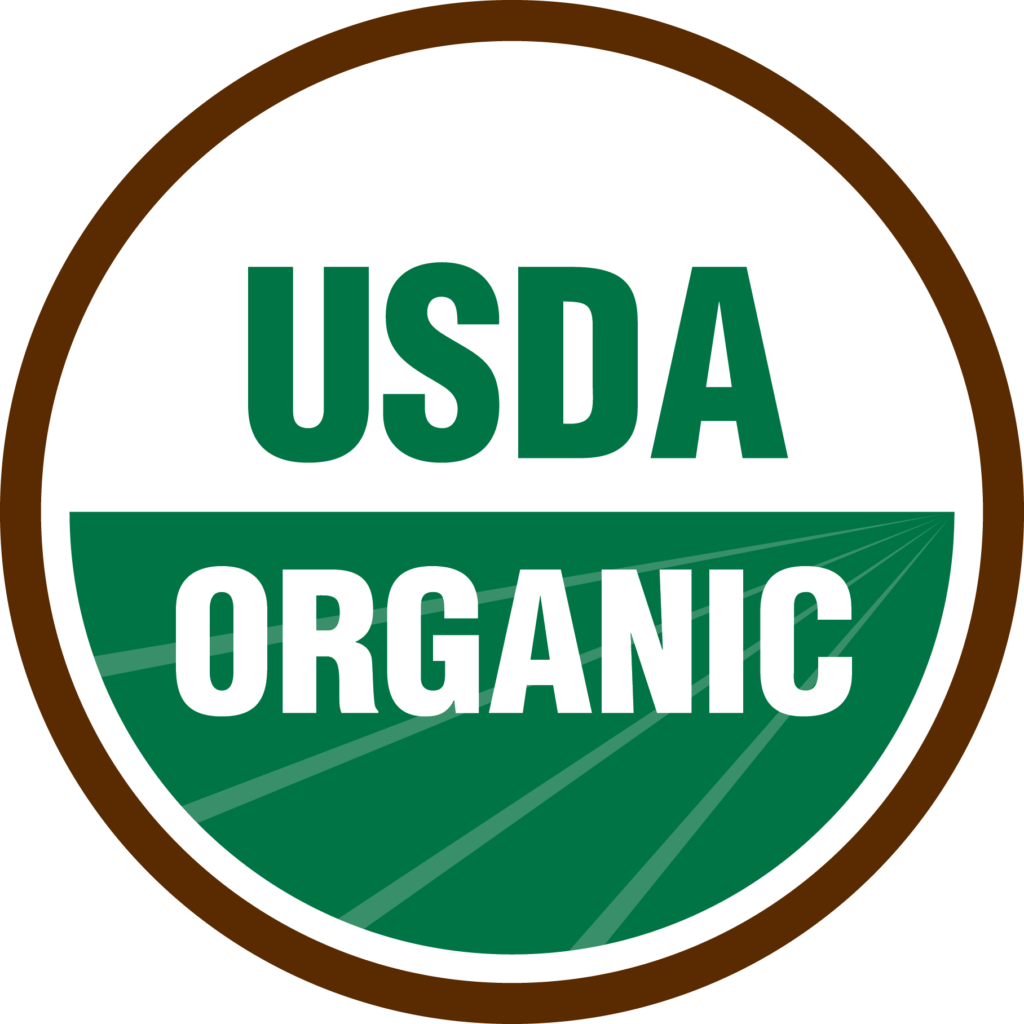
There are very specific requirements that farmers and product manufacturers must meet in order for their products to be certified as organic by the U.S. Department of Agriculture (USDA). For example, any land that is to be used to produce raw organic commodities is not allowed to have prohibited substances, such as most pesticides, applied to that land for a three-year period. Until the full transition period is completed, cultivators cannot sell, label, or represent any of the products from that land as “organic.”
Farms and other businesses seeking organic certification must also undergo on-premises inspections of their operations from USDA-accredited certifying agents, to ensure that they are complying with USDA organic regulations. Third-party agents will then issue the organic certification if all USDA requirements are met.
In November 2019, the USDA issued instructions clarifying its policy regarding the organic certification of industrial hemp and hemp-derived products. “For hemp produced in the United States,” it said, “only hemp produced in accordance with the U.S. Domestic Hemp Production Program and/or the 2014 Farm Bill may be certified as organic, if produced in accordance with USDA organic regulations.”
‘Very Rigorous Inspections’
In March 2019, Colorado-based Haleigh’s Hope, a hemp-derived CBD oil, became the first hemp product to receive USDA organic certification. Company founder and CEO Jason Cranford said his firm first got their hemp crop certified, “which is fairly easy,” but then realized that certification only applied to their plant material and not the finished product.
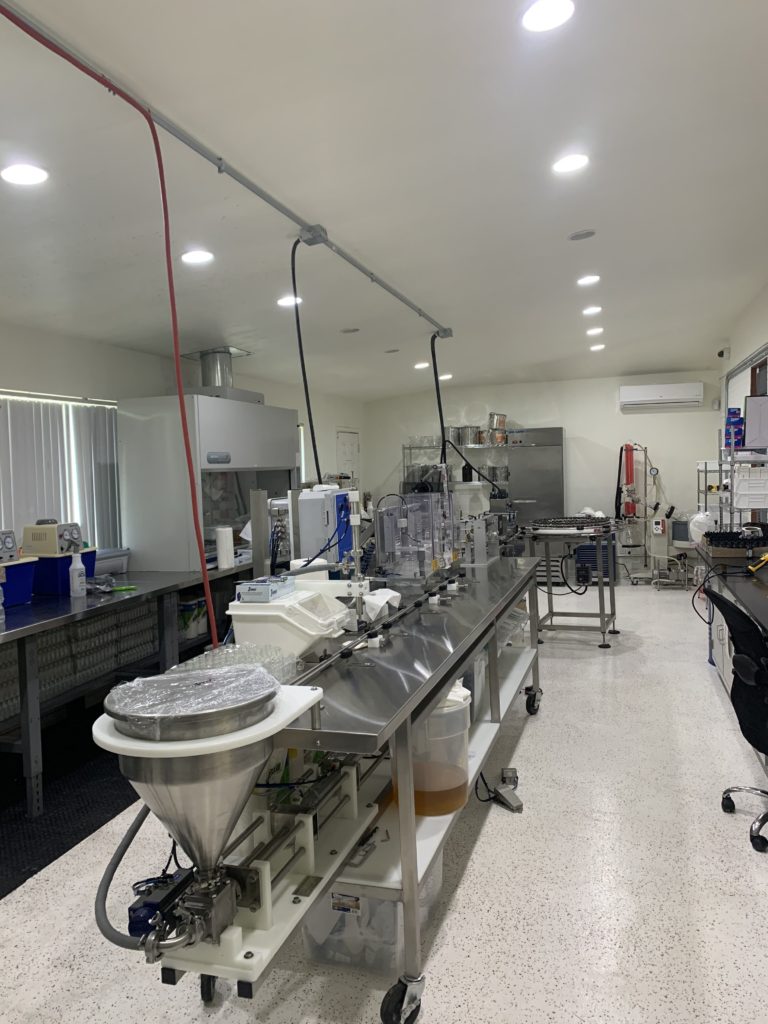
Cranford told Hemp Benchmarks that the entire organic certification process was long, spanning about four months. “It involved multiple inspections,” he said, “very rigorous inspections of our books, physical inspection of our facilities, interviews with all the operators involved with the company.”
Due to the rigor of the inspection process, he doubts that certified organic status will become the norm for hemp-derived products. “It will be a niche,” Cranford said, “because it’s very, very hard to get that certification and even harder to keep it once you have it. For most companies that are in it for the money, [organic certification is] a headache.”
Unfortunately, Cranford pointed out that some hemp companies still market their hemp products as organic even in the absence of official certification. He suggested that consumers and wholesale buyers look for a “USDA organic” seal on products making such claims to ensure that they actually meet federal organic standards.
The penalties for companies and individuals that falsely represent their products as USDA-certified organic can be substantial. The agency notes that using fraudulent documents “to market, label, or sell non-organic agricultural products as organic is punishable by fines of up to $17,952 for each violation.”
Hemp-Specific Hurdles to Achieving Organic Certification
On top of the long and rigorous process of organic certification in general, certain legal and regulatory issues are throwing up additional hurdles specific to hemp businesses seeking to gain the USDA organic seal for their products.
Corey Cox is a senior associate attorney and member of the hemp and cannabinoid practice group at the Denver-based law firm Vicente Sederberg. Hemp products that have a USDA organic certification and seals, he told Hemp Benchmarks, have the advantage of publicly displaying that their items and business practices are federally legal and meet more stringent regulatory standards.
However, Cox said hemp businesses seeking USDA organic certification can sometimes face difficulties stemming from the still-lingering social and legal stigmas surrounding cannabis, including the fact that some remain unfamiliar with the distinction between federally legal hemp and illegal marijuana. “I think some companies continue to deal with questions on their operations; whether what they’re doing is legal or not,” he noted. More specifically, Cox explained concerns over excessive THC levels in hemp crops and products, along with U.S. Food and Drug Administration (FDA) policy on CBD, are causing some USDA-accredited organic certifying bodies to hesitate in working with hemp businesses.
Certifying Bodies Wary of Being Burned by ‘Hot’ Hemp
Cox noted organic certification of hemp is increasingly becoming routine for the laboratories involved in that process. He added, however, that concerns over so-called “hot” hemp – that is, hemp with THC levels higher than the maximum 0.3% – are inhibiting some labs and certifying bodies from engaging with hemp businesses.
According to Cox, the third parties that provide both the lab services and certifications for hemp products, including organic-certified products, “are worried they might be in possession of products that, if too hot, might be considered marijuana. And along with potential legal issues, there’s also a reputational risk for that company in that situation.” He continued, “I think there’s still some hesitancy among certifying agencies to come collect samples or put their name on product labels, especially when there’s a possibility [the product] might pass over that THC threshold.”
FDA Policy Creates ‘Chilling Effect’ on Attempts to Certify Hemp-Derived Products

Cox believes that current U.S. Food and Drug Administration (FDA) policy on hemp-derived CBD “is certainly contributing to the difficulties some companies are having [in] achieving USDA organic certification.” According to a Public Health Focus document published by FDA, CBD “is an active ingredient in a [prescription] drug product” – namely the FDA-approved drug Epidiolex – and such drug ingredients are prohibited under the Federal Food, Drug, and Cosmetics Act from being added to foods or marketed as dietary supplements.
As hemp leaves the farm and moves further down the supply chain, Cox observed, organic certifiers must look at different ingredient preparations as they certify the final products. “I think the FDA’s public position, that CBD cannot be marketed as a dietary supplement, is coming into play here,” he said, “and is creating concerns for these organic certifying companies. That if they are certifying a … finished dietary supplement, they are somehow signing off on a product that the FDA may view as unlawful.”
“So the FDA’s position on CBD,” Cox said, “has a chilling effect on some of these organic certifiers, especially farther down the supply chain when we’re looking at finished consumer products.”
Cox believes there will “hopefully” be more guidance coming from the FDA, and eventually from Congress, that will clarify the CBD regulatory controversy. If a clearly defined regulatory pathway for CBD to be marketed as a supplement or added to foods comes to fruition, then federally-accredited organic certifying bodies would presumably be more willing to work with companies producing such products.
‘Above and Beyond’
In the interim, organic hemp advocates believe a growing number of consumers will come to understand the importance of their product lines achieving the distinction of a USDA organic seal. Having a USDA-certified organic product “means that we’re a trustworthy company,” said Jason Cranford at Haleigh’s Hope. “It means that we’ve gone above and beyond to make sure products are safe for human consumption and are produced from the highest manufacturing level for agricultural products.”
